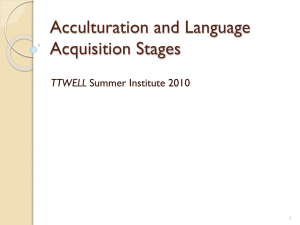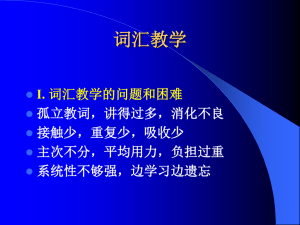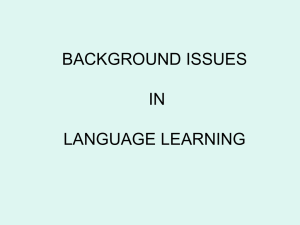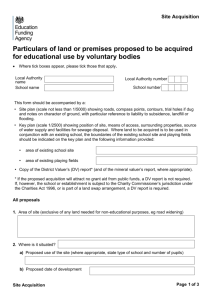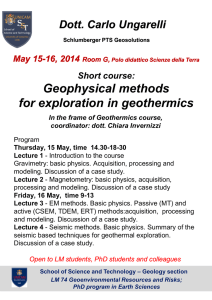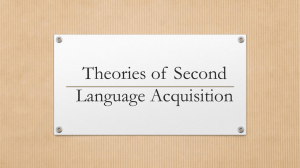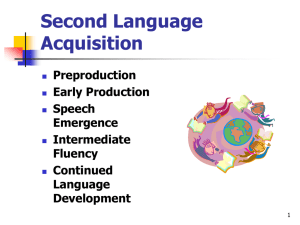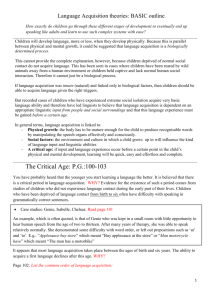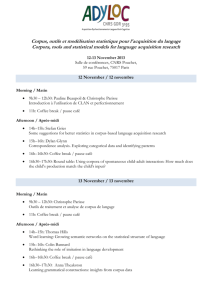ACADEMIC ENGLISH COURSE TOPIC LEARNING/ ACQUISITION
advertisement
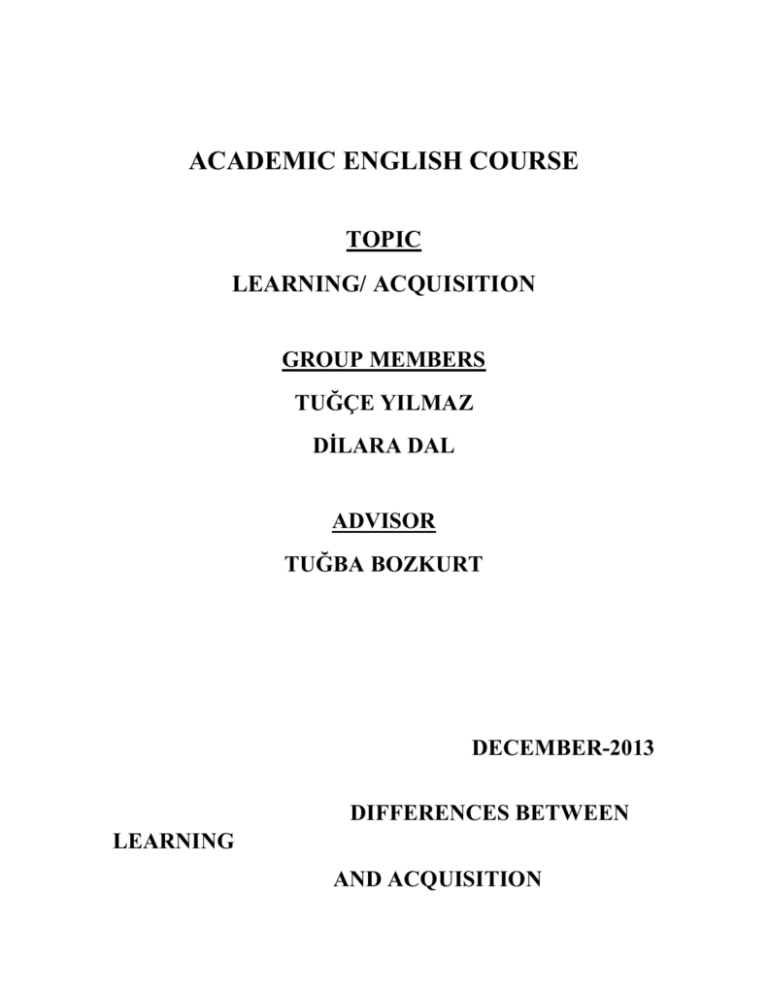
ACADEMIC ENGLISH COURSE TOPIC LEARNING/ ACQUISITION GROUP MEMBERS TUĞÇE YILMAZ DİLARA DAL ADVISOR TUĞBA BOZKURT DECEMBER-2013 DIFFERENCES BETWEEN LEARNING AND ACQUISITION No doubt, learning and acquisition are very similar each other. A lot of people confuse these concepts with each other. Although there are many differences between learning and acquisition, many people do not know that these differences. What do we know about learning and acquisition? First of all, learning is the desired behavior changes in people, and these behaviors are that often permanently. Learning can be explained better through language learning. Language learning takes place in a conscious way. That is, people are aware of everything that takes place. Language learning is not communicative. It is like learning a second language. If people know about a language, they can learn better about grammar rules, or they can write better with grammar rules. Moreover, errors can be corrected in learning, and learning occurs actively. As a result of learning, there are observable changes. This is like writing and effective speech. Secondly, acquisition is a natural process taken place in an unconscious way. For example children acquire language through a subconscious process during which they are unaware of grammatical rules. This is similar to the way they acquire their first language. Acquisition’s focus is on needs and interest of individuals. For example, the learner needs a source of natural communication, in order to acquire language. We know that people compromise through language, and so they acquire a language. Apart from these, people get a feel for what is and what is not correct, so errors are accepted as developmental, and there is no limit for acquisition because acquisition can occur at all age. Moreover, there are a lot of factors affecting learning, but many of these factors do not affect acquisition because acquisition takes place unconsciously. Some of the factors that affect learning are age, intelligence, attention, motivation, worry, physiological state, and accumulating of past. Apart from these, there are learning strategies for effective learning, and these are taking not and summarizing. In conclusion, learning and acquisition are separated by at thin line. While learning takes place in a conscious way, acquisition occurs in unconscious way. For example, language acquisition does not require extensive use of conscious grammatical rules, and does not require tedious drill although language learning requires grammatical rules and knowing about language. Unknown Words Take place: happen, occur (meydana gelmek) Conscious: Processing the faculty of knowing one’s own thoughts or mental operations. (bilinçli) Unconscious: not conscious; having no consciousness or power of mental perception. (bilinçsiz) Require: to demand, to insist upon having. (gerektirmek) Desired: (gerekli) Acquire: to again, usually by one’s own exertions. (gerektirmek) Tedious: involving tedium; tiresome from continuance (bıktırıcı) Separated: (alrılmış) Get a feel: (alışmak) Compromise: a mutual agreement to refer matters in dispute to the decision of arbitrators. (anlaşmak) stable: firmly fixed or not likely to move or change. (kararlı) permanent: lasting for a long time or for ever (kalıcı) from scratch: (sıfırdan) Reference: http://www.sk.com.br/sk-krash.html http://www.esl-lounge.com/blog/183/difference-betweenlearning-and-acquisition-in-esl http://www.ghaea.org/index.php?option=com_content& view=article&id=130%3Aenglish-language-learnerssecond-language-acquisition&Itemid=43
